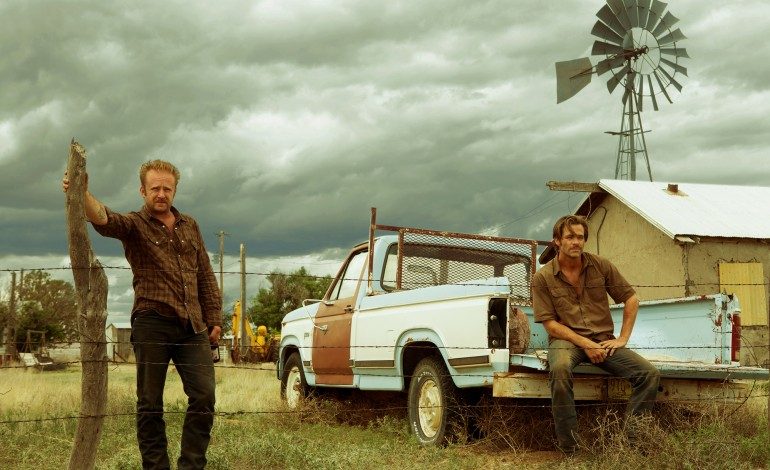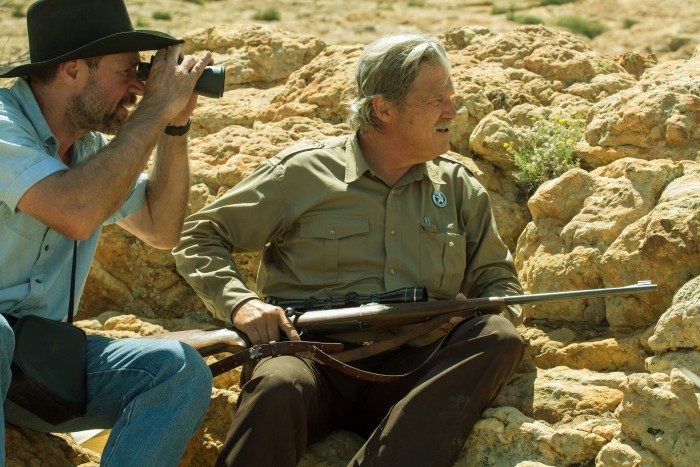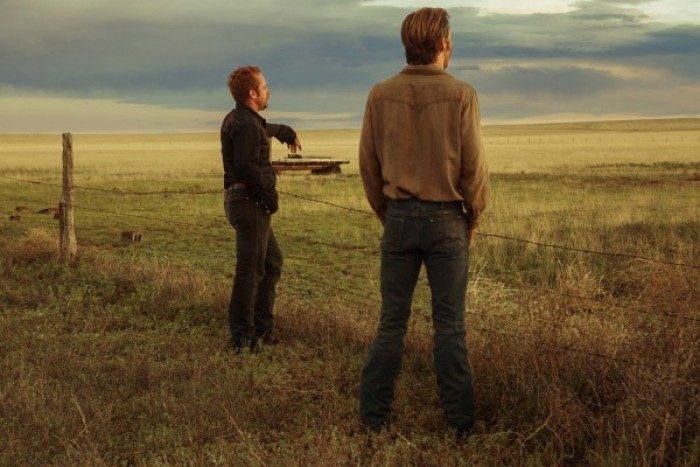

Hell or High Water is a film about family and the sacrifices we make for it. It is a film that hearkens back to a nearly 1970s landscape of antihero. Someone who is clearly on the wrong side of the law but we root for to succeed because the system has wronged them and action must be taken to correct. It is the film that cinema lovers have been craving in this sea of reboots, remakes and superhero movies that have taken over our cinema.
Discussing the film’s plot is tricky because on the surface it is a simple story, yet it’s told with deep complexity at the same time. The basic plot involves two brothers (Ben Foster and Chris Pine) robbing different branches of a Texas bank that have virtually bankrupted their mother in their attempts to take the family ranch. From the beginning, we see the wounds are deep, with differing viewpoints on how they’ve gotten to this point in their lives. Tanner (Ben Foster) has been in and out of prison over the years for past bank robberies while Toby (Chris Pine) is struggling to keep his head above water and be a better father to his young sons. But the beauty of the film is that it doesn’t present a sibling rivalry or jealousy between the two, but more a strong and loving brotherly bond. They both know how each has gotten to this point and continue to be there for one another. It feels so real and authentic a relationship, one that is rarely painted onscreen.
The moral center of the film is Jeff Bridges, playing Sheriff Marcus. His first few moments on screen are of him reflecting on being forced into retirement within the next few months before being presented with the bank robbery case. His sheriff is a very old school type of lawman. There’s right and there’s wrong; there’s good and there’s bad – there is no grey in his world. His search for the robbers is underlined with his last quest to prove his worth and to hold off the inevitably tedium of looming retirement; his desire to not be relegated to the front porch rocking chair perhaps greater than his desire to capture the robbers. Riding alongside him is Deputy Alberto (Gil Birmingham), his dry witted partner who never lets him get away with his nonsense. Their relationship is almost a flip side of the same coin to Toby and Tanner’s. They have a more salty rapport, but the respect and love is still felt underneath.
By the film’s end we are presented with a moral question that begs us to look deep within at the actions and choices we make for family. That animal instinct to take down whatever it is we think is standing in our way and what one would do to have their children have a better day. The genius of the film is that it doesn’t say one side is in the right or one is in the wrong. It’s more an area of ambiguity that will always be grey. These brothers live in that grey by forced circumstance and have decided to stop the cycle before its too late.
Verdict: 4 out of 5
Performances across the board are beautifully nuanced and subtle, making the film feel honest and less a crime drama and more a human drama. A special mention to the lush and gorgeous cinematography by Gil Nuttgens, who captures small town Texas with am impeccable sense of loss and sorrow. It reads between each character’s face as well as the land itself. With such power, this a film we should keep striving to make.


